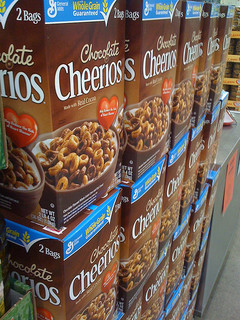 I have long advocated that high fructose corn syrup (HFCS) is bad for our health and has no place in school lunches. It is banned from our home. I personally banned it from the preschool program I taught for eight years.
I have long advocated that high fructose corn syrup (HFCS) is bad for our health and has no place in school lunches. It is banned from our home. I personally banned it from the preschool program I taught for eight years.
Now, there is evidence it is not just the risk of cardiovascular disease and diabetes, but HFCS actually affects memory and thus learning.
Mother Jones reports:
A team of UCLA researchers has observed that high-fructose corn syrup (HFCS) makes rats more forgetful, while omega-3 fatty acids—chemical compounds that research has shown can protect the brain’s synapses—seem to have the opposite effect.
The researchers, whose paper will be published this week in the peer-reviewed Journal of Physiology, trained a group of rats to navigate a maze. Then, they randomly divided the rats into four groups, and for six weeks they fed each group a slightly different diet in addition to the usual rat chow: One group received HFCS in its water; another received omega-3 fatty acids. A third received both HFCS and omega-3s, and the fourth, a control group, received plain old rat chow.
At the end of the six weeks, the group that had been given omega-3 fatty acids but no HFCS was the speediest at remembering how to get out of the maze. The control group (no HFCS or omega-3s) was the second fastest, and the group that had received omega-3 fatty acids and HFCS came in third. The slowpokes of the lot were the group that had only received HFCS. The takeaway: HFCS seemed to impair rats’ memory, while omega-3 fatty acids seemed to help it.
I can’t help but think of [amazon_link id=”B004S30IWU” target=”_blank” ]Ralph S. Mouse[/amazon_link] running on top of the maze. Apparently, he didn’t find any HFCS in the Irwin J. Sneed Elementary School cafeteria to be able to outsmart the maze.
Actually, the UCLA study has been corrected, as the researchers did not study HFCS soley, but fructose “generally”. Even so, the research is still important:
While earlier research has revealed how fructose harms the body through its role in diabetes, obesity and fatty liver, this study is the first to uncover how the sweetener influences the brain.Sources of fructose in the Western diet include cane sugar (sucrose) and high-fructose corn syrup, an inexpensive liquid sweetener. The syrup is widely added to processed foods, including soft drinks, condiments, applesauce and baby food. The average American consumes roughly 47 pounds of cane sugar and 35 pounds of high-fructose corn syrup per year, according to the U.S. Department of Agriculture.“We’re less concerned about naturally occurring fructose in fruits, which also contain important antioxidants,” explained Gomez-Pinilla, who is also a member of UCLA’s Brain Research Institute and Brain Injury Research Center. “We’re more concerned about the fructose in high-fructose corn syrup, which is added to manufactured food products as a sweetener and preservative.”
High sugar consumption impaired cognitive abilities and disrupted insulin signalling by engaging molecules associated with energy metabolism and synaptic plasticity; in turn, the presence of docosahexaenoic acid, an n-3 fatty acid, restored metabolic homeostasis.
[…] High Sugar Consumption Makes Kids Dumb (ecochildsplay.com) […]